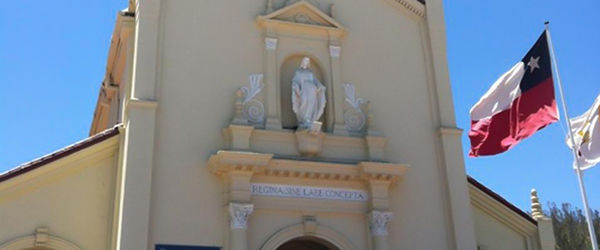This is the time of year when voter guides appear in our mailboxes, digital and otherwise, along with fliers on our car windshields. With that in mind, here is some information about two subjects that are important to our responsible participation in the political process. Conscience and decisionThe first: How can Catholics inform their consciences and make a decision on how to vote on the candidates and the issues? As Catholics, an important voter guide that we need to investigate is the U.S. Catholic Bishops’ publication, “Forming Conscience for Faithful Citizenship: A Call to Political Responsibility.”Often the statement is made by well-meaning Catholics that we should not mix religion and politics. But the bishops, as they do every four years, offer us this “teaching document” to better understand that we Catholics have a responsibility to be informed citizens who vote through the lens of an informed conscience. “In this coming election and beyond, we urge leaders and all Catholics to share the message of faithful citizenship,” emphasize the authors of the Introductory Note, including Archbishop José Gomez and Auxiliary Bishop Thomas Curry of Los Angeles. “This kind of political responsibility is a requirement of our faith and our duty as citizens.”The document is divided into three parts. Part I contains the U.S. Bishops’ “Reflection on Catholic Teaching and Political Life.” Part II speaks to applying Catholic teaching to major issues like human life, family life, social justice and global solidarity. Part III addresses goals for political life and the challenges for citizens, candidates and public officials. The document also provides a springboard for thoughtful dialogue with friends, family and fellow Catholics regarding important issues.An important note: This document does not tell us for whom to vote or how to vote. The benefit of the document to us as Catholic voters is that it reassures us that we have performed our role as faithful citizens, if we vote with well-formed consciences. The document is available on-line, in Spanish and English; visit http://www.usccb.org/issues-and-action/faithful-citizenship/. Voter registrationThe second key issue: How can potential voters be sure they are registered? And if they are not registered, how can they get answers to questions about registration?To vote in California, one must be a U.S. citizen, a resident of California, and 18 years of age or older on Election Day, Nov. 6. If you are unsure of your registration status, visit the California Secretary of State’s web site, http://www.sos.ca.gov/elections/elections_vr.htm, and click on “Check Status of Your Voter Registration.”The web site offers much useful voter and registration, noting that re-registration is required when (a) you move to a new permanent residence, (b) you change your name, or (c) you change your political party choice. Perhaps most important: Your registration must be postmarked no later than October 22, 2012, in order to be eligible to vote Nov. 6.Additional assistance is available in many languages; contact the Secretary of State’s office at the following toll-free numbers: English, (800) 345-8683; Spanish, (800) 232-8682; Chinese, (800) 339-2857; Hindi, (888) 345-2692; Japanese, (800) 339-2865; Khmer, (888) 345-4917, Korean, (866) 575-1558; Tagalog, (800) 339-2957; Thai, (855) 345-3933; Vietnamese, (800) 339-8163; and TTY/TDD, (800) 833-8683.With an informed conscience, thoughtful dialogue, and prayer, we are prepared to take on the responsibility to fulfill our faithful citizenship.Anthony Fadale is a committee member of L.A. Catholics Against the Death Penalty, under the Office of Social Justice. This article is the first of a series.

